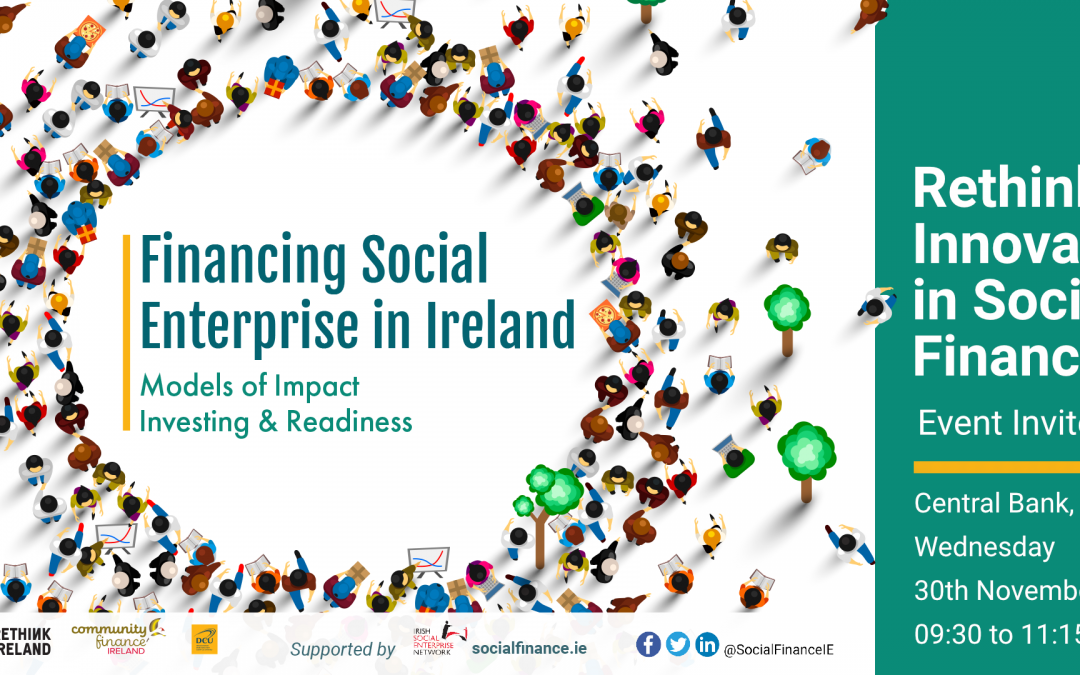
by admin | Nov 10, 2022 | Social Finance
Our final event for our project ‘Financing Social Enterprise in Ireland – Models of Impact Investing & Readiness’ will be on 30th November 2022. We are finalising plans for our in person event in the Central Bank in Dublin from 09:30 until 11:15 on 30th November 2022.
You can register through the link here: https://www.eventbrite.ie/e/rethinking-innovation-in-social-finance-tickets-464891792867
Ireland will demonstrate its commitment to making social finance ever more accessible to social enterprises of all shapes and sizes as it prepares to launch a report highlighting the findings of a research project funded by the EU Commission through the EaSI Technical Assistance Programme. The support measure also facilitated informative interactions with 13 other research projects across Europe.
Led by Rethink Ireland, this research consortium included Community Finance Ireland and Dublin City University, with support from the Irish Social Enterprise Network.
Starting with an argument that the existing suite of financial products available to the Irish social enterprise sector do not adequately meet the needs of all, the research group were tasked with exploring what other options are open to our colleagues in the sector across Europe. Might any of these facilities be replicated in Ireland? How difficult might it be to roll them out? If they were, would there be a demand among the market place? These and many other questions formed the basis of the research project.
Among the research findings, the consortium are scheduled to launch the piloting of a radical new financial product in 2023. A mix of repayable and non-repayable loans, together with crucial non-financial support, the product is primarily targeting first time borrowers from the social enterprise and community space.
The new and innovative product (a first in Europe) will aim to introduce those with no security, little by way of trading record, but delivering respectable levels of social impact, to loan finance via a responsible, supportive approach.
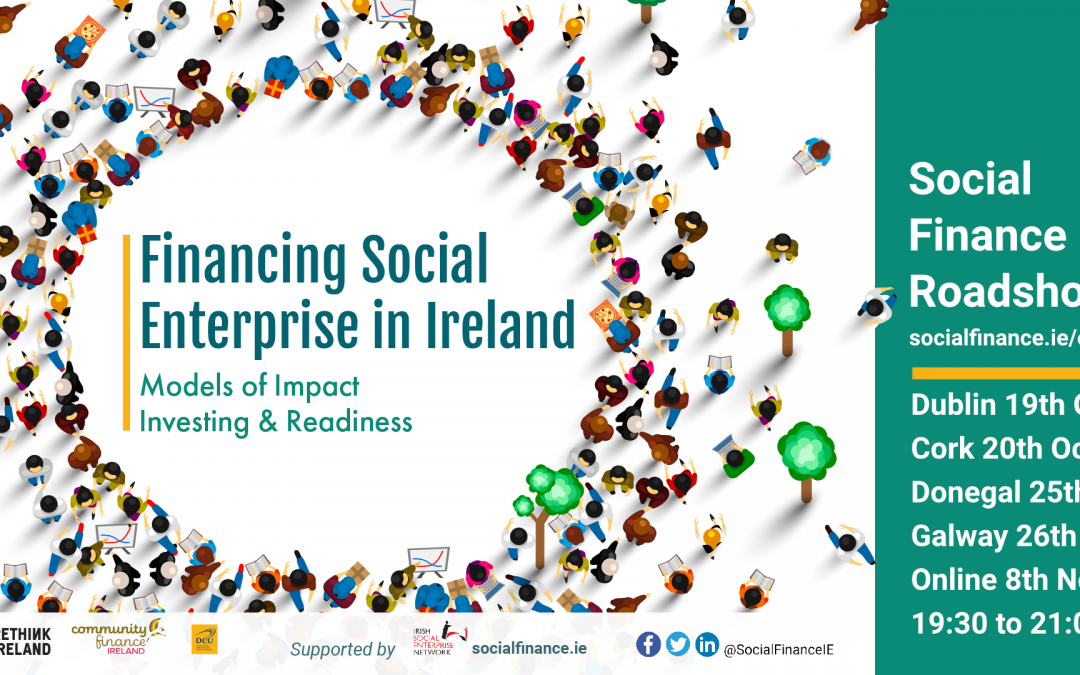
by admin | Oct 2, 2022 | Social Finance
The Irish Social Finance Eco-system is poised to introduce it’s first new financial product in over 20 years, following research undertaken by Rethink Ireland, Community Finance Ireland, and Dublin City University, in association with the Irish Social Enterprise Network.
Through a mix of repayable loans, non-repayable loans and crucially, non-financial support, the product is primarily targeting first time borrowers from the social enterprise and community space.
The new and innovative product (a first in Europe) will aim to introduce those with no security, little by way of trading record, but delivering respectable levels of social impact, to loan finance via a responsible, calculated approach.
This event aims to pump prime demand among the marketplace for hybrid loan grant supports of between €30k and €100k. Those involved in local authorities and NGOs supporting social and community enterprise, as well as early stage social enterprises, will find this information of benefit.
As importantly, the product promoters who are placing the finishing touches to what will be a pilot call for applications in 2023, are seeking feedback on the generic financial needs of social enterprise through this event which is one in a series across Ireland.
We are undertaking a roadshow across Ireland and want to hear about your experience and your feedback. Please join us at any of the following events:
Dublin – 19th October at 7.30pm https://www.eventbrite.ie/e/417582940817
Cork – 20th October at 7.30pm https://www.eventbrite.ie/e/417593231597
Donegal – 25th October at 7.30pm https://www.eventbrite.ie/e/417593582647
Galway – 26th October 7.30pm https://www.eventbrite.ie/e/417594144327
Online – 8th November 7.30pm https://www.eventbrite.ie/e/417604605617
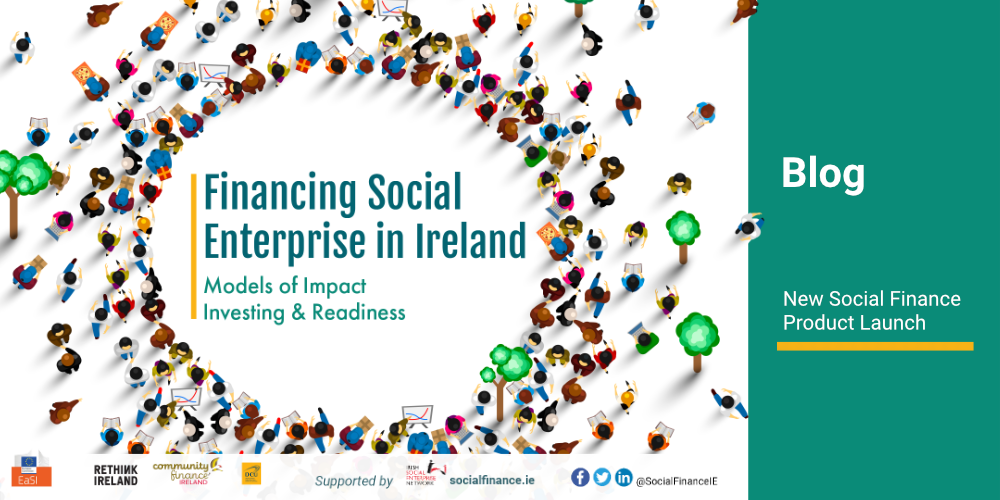
by admin | Sep 22, 2022 | Social Finance
The Irish Social Finance Eco-system is poised to introduce it’s first new financial product in over 20 years, following research undertaken by Rethink Ireland, Community Finance Ireland, and Dublin City University, in association with the Irish Social Enterprise Network.
A mix of non-repayable loans, low interest loans and crucially non-financial support investment readiness, the product is primarily targeting first time borrowers from the social enterprise and community space.
The new and innovative product (a first in Europe) will aim to introduce those with no security, little by way of trading record, but delivering respectable levels of social impact, to loan finance via a responsible, calculated approach.
This event aims to pump prime demand among the marketplace for hybrid loan grant supports of between €30k and €100k. Those involved in local authorities and NGOs supporting social and community enterprise, as well as early stage social enterprises, will find this information of benefit.
As importantly, the product promoters who are placing the finishing touches to what will be a pilot call for applications in 2023, are seeking feedback on the generic financial needs of social enterprise through this event which is one in a series across Ireland.
If you want to find out more and speak to the team about this product, join our roadshows being held across the country: https://socialfinance.ie/events/
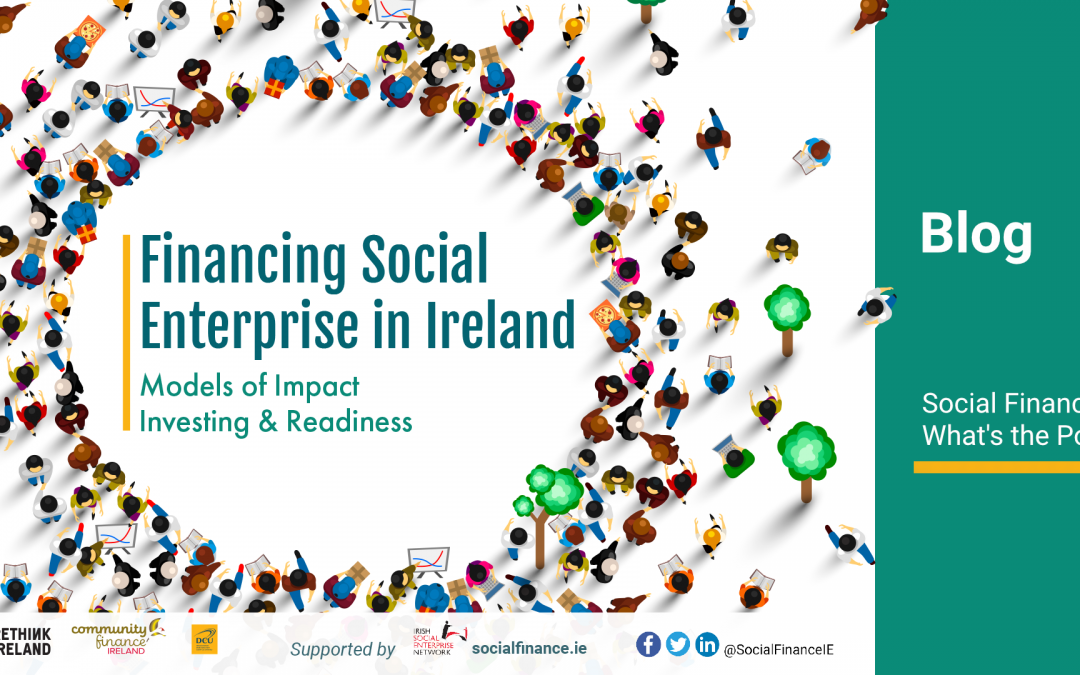
by admin | Sep 4, 2022 | Social Finance
The ambition of all within the Social Economy is to encourage sustainability and reduce levels of dependency, where possible, on the uncontrollable, whatever guise it might take.
The CVSE (Community, Voluntary and Social Enterprise) sector owes a great deal to the availability of charitable support, as well as start-up and development grants from various quarters. Much of the Community & Voluntary subset will no doubt always be reliant on continued grant support to maintain the level of service provision. But what of the rest of the sector involved in growing the earned income side of their Social Enterprise?
Social Enterprise will usually need debt finance at some point, to draw down retrospective grant support, for property acquisition, development, refinance personal debt, or manage existing unsustainable borrowings where immediate demands on repayment are a real threat.
The volunteer led ethos implies to the conventional debt system that there exists at least a reduced, if not total, absence of financial vested interest in the project.
The absence of collateral of any marketable value, often requires volunteers to sign personal guarantees in order to access this debt. A community manager pledging their home as security on a bank loan has been as bad as we have seen. That the voluntary board allowed the situation to arise is a whole other matter.
Social Finance is the incubator for the community sector on the road to achieving experience in borrowing and developing a credit score, but on terms & conditions appropriate to that market. It does not request personal guarantees from volunteers (or staff!), and normally does not charge arrangement fees. Its priorities are simply:
- Firstly, find a way to make finance available to a Social Enterprise
- Secondly, have the finance repaid in full
- And finally, derive interest income from the loan to cover its “cost to serve”, and mitigate potential losses across a portfolio
Presently in Ireland (2022), social finance up to a general limit of €500k is available to the CVSE sector absent arrangement fees and personal guarantees, yet recent survey findings would suggest that much of the sector remains unaware of the support, with over 50% financed by conventional banking instruments such as overdrafts and secured borrowings.
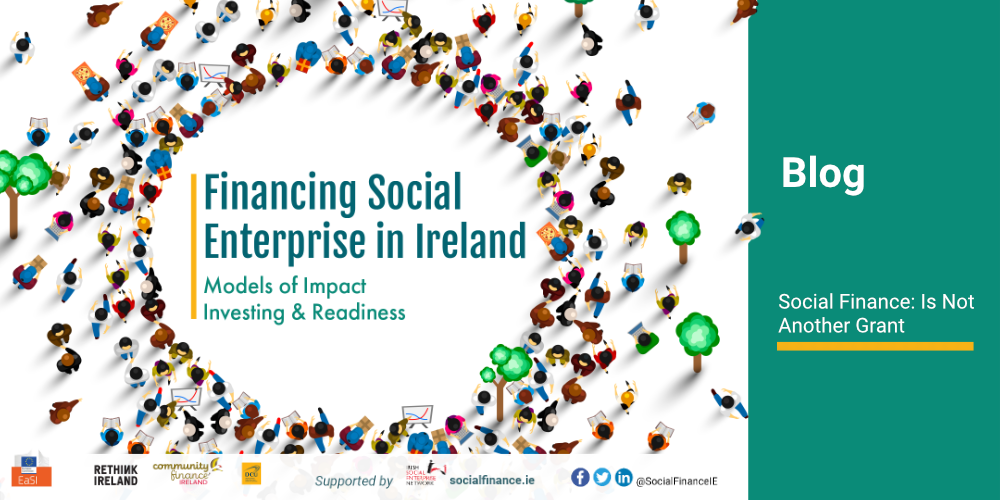
by admin | Aug 28, 2022 | Social Finance
A survey on social finance (Sep. ‘21), commissioned by DCU and responded to by almost 200 social enterprises across Ireland, revealed a number of interesting findings. One such outcome was that half of the respondents source their finance directly from the conventional banking sector, as opposed to applying for support via indigenous social finance providers such as Community Finance Ireland and Clann Credo, which were established specifically to cater for that market, and ensure profits are recycled back into the sector.
The statistic is interesting in that it has been reflected upon differently in various quarters. Some would argue that the fact social finance now accounts for almost 50% of the sample is a significant step in the right direction. If the total amount loaned by social finance providers across the island is just somewhere north of €200m over the last 20 years, then this relatively small amount (in banking terms) has punched well above its weight.
Another mind-set would take a more pessimistic view of the finding. After 20 years of the provision of social finance in the Republic, there remains either a stark lack of awareness of the product’ existence, or, more worryingly, it means that the offering in its current structure may be incompatible with the needs of a substantial element of the market.
In either case, the present research project being undertaken by Rethink Ireland, DCU and Community Finance Ireland: “Financing Social Enterprise in Ireland – Models of Impact Investing & Readiness” aims to address both possible reasons behind this more dimly held view of the current state of play.
Through a series of customer focused product workshops, investor readiness sessions, and round table discussions with potential capital providers to the sector, moves are afoot to at least mitigate that low level of awareness, as well as making products more accessible for those at the margins when it comes to risk appetite.




